Protecting Your Investment
Will your homeowners insurance protect you from the many hazards your property might face?
When your home is ruined by a fire, ravaged by wind or hail, or in shambles after a robbery, of course you want your insurance provider and your corresponding home insurance policy to be there to help you pick up the pieces. But are you sure that you have the proper coverage to repair or, in a worst-case scenario, replace what has been lost?
Fire
What does your home insurance cover in case of fire?
In just 30 seconds, a small flame can become a major fire in your home, leading to property damage that can cost tens to hundreds of thousands of dollars to repair. In fact, just rebuilding the average kitchen – where 44 percent of all home fires begin – can cost homeowners upwards of $50,000. So, you can imagine just how expensive the recovery process is when most of your home and belongings are ruined and need to be restored. However, whether you experience a relatively minor fire, or suffer a true catastrophe where everything in your home needs to be replaced, having the proper homeowners insurance coverage should significantly limit any out-of-pocket expenses. From paying for repairs to any singed or burned-away portions of your home to covering the cost of replacing your personal belongings and your family’s temporary lodging needs, a well-designed home insurance policy should have very few limitations or exclusions when it comes to providing the funds necessary to recover after a fire.
Smoke Damage
What does your home insurance cover in case of smoke damage?
After a fire, the damage from smoke may be more severe and pervasive than the structural damage caused by the fire itself. Many of your belongings could have a foul odor, ash and soot may be stuck to floors, walls, and furnishings, and invisible particles of toxic materials that could cause serious health issues for you and your loved ones might be floating in the air. To ensure that the home you and your family move back into after a fire does not put you at risk, you may have your house and any salvageable items professionally and thoroughly cleaned. But this cleanup, which might include ash, soot, and burnt materials removal, ozone treatments or thermal fogging, painting, and more, can quickly add up. For this reason, most standard home insurance policies cover a wide variety of smoke damage remediation expenses, with virtually no limits or exclusions. Plus, if your homeowners insurance policy includes the proper Replacement Cost Endorsement for the home and its contents, then your coverage should pay to replace or repair virtually anything inside your home, including furniture, curtains, clothing, linens, and carpeting, that have been damaged by smoke.
Lightning Strike
What does your home insurance cover in case of a lightning strike?
Most houses are filled with multiple pathways for lightning to enter, although the odds of a direct strike are fairly low. However, if your home does ever get hit, the resulting electrical current is likely to cause significant damage, that may include starting a roof or attic fire, fracturing your brick or stone chimney, blowing out your windows, and causing an explosive surge of electricity that cooks your appliances, electronics, and basically anything plugged into a socket. Since a lightning strike can leave you with extensive home repairs to make, you should be pleased to know that most standard homeowners insurance policies cover the devastating consequences of a lightning strike. From helping you replace personal belongings that are ruined, paying for repairs to your home and other structures on your property, and reimbursing you for additional costs to temporarily live somewhere else while your home is being repaired, your homeowners policy should be there for you.
Theft
What does your home insurance cover in case of a theft?
Your home insurance should provide the financial help you need to replace virtually all your stolen possessions, whether taken from your house, garage, shed, or even items that are taken from your car. However, the loss of your belongings is not the only tragic outcome of a break-in. A burglar can leave considerable wreckage behind – a kicked-in door, a pried-off lock, a broken window, and more. Paying for these types of repairs on your own can put you out thousands of dollars. Fortunately, items that are damaged due to a home theft are typically covered by homeowners insurance, although the actual amount you will be reimbursed will depend on whether you have an Actual Cash Value (ACV) policy or a Replacement Cost (RC) one. It’s critical to have your insurance professional explain the difference to you. Also, if you have valuable items in your home, like expensive jewelry, art, or other collectibles, then it is a good idea to schedule these items with a personal property endorsement. This extra coverage should help cover the costs of replacing any bigger-ticket items if they are stolen.
Talk to an insurance professional about your homeowner risks.
Windstorm or Hail
What does your home insurance cover in case of windstorm or hail damage?
Whenever a summer thunderstorm rolls through your neighborhood or a winter nor’easter blows in off the ocean, hail and wind often tag along. Whether it’s only the size of a pea or measuring two inches in diameter, when hail reaches your home it could be traveling at a speed of up to 120 mph. Everything from gutters and downspouts to siding and windowsills, to skylights and chimneys, are likely to get dents, dings, buckling, and warping. Other structures around your home – outside deck, patio cover, gazebo, shed – are also likely to suffer damages. As if that isn’t enough, strong winds pose a similar threat to the structure of your home. Roofs are particularly vulnerable, and high winds often make shingles curl up, peel away, or simply rip off. This can leave your whole home vulnerable to the elements, especially water seepage and rot. However, with the proper home insurance policy in place, you should be able to get financial help to repair or replace property and belongings that are ruined as a result of these extreme weather events. One important thing to note, your homeowners policy is not designed to cover any flood damages, even if the flooding is a direct result of a storm, so it is smart to talk to your insurance professional about securing separate flood insurance.
Falling Object
What does your home insurance cover if an object falls and damages your home?
The falling object coverage in your home insurance policy includes protection against unlikely events like a meteor, asteroid, satellite, and any other space debris hitting your home. However, these risks are definitely not what most homeowners file a claim for. Instead, the biggest falling object threats to New England homes are generally upturned trees, cracked limbs, and broken branches. Our region’s high winds, heavy rains, and ice and snowstorms are known to bring even a healthy tree down, causing a heap of trouble for homeowners. From crashing through your roof and ceiling to cracking windows, gutters, and siding, falling branches, limbs, and, in a worst-case scenario, a whole tree can cause significant property damage. But this is exactly the reason you have home insurance; to cover unforeseen losses like the damage caused to your home and other structures on your property when Mother Nature knocks down a tree. There are a couple of limitations to this coverage, though. If, for example, a tree simply falls in your yard and does not damage your home, garage, fence, shed, or any other insured property, then you have no loss to claim. Because limits and exclusions vary so much from policy to policy, it’s important to go over your specific falling object coverage with your insurance professional.
Water Damage
What does your home insurance cover in case of water damage?
From a leaky roof or dishwasher to an overflowing washing machine or toilet, to burst pipes, a cracked foundation, or a broken sump pump, there are really an endless amount of ways for unwanted water to seep into your home. Left unchecked, excess water in your home can be a very expensive problem to remediate, leaving you to replace soaked furniture, carpets, and clothing, repair buckled hardwood floors and weakened plaster walls, and, last but not least, clean up dangerous mold growth. For this reason, as soon as you notice a drip, leak, or water collecting anywhere in your home, it’s a good idea to call in a professional to fix the issue and prevent further property damage. Your homeowners policy should cover any necessary repairs and the costs to replace any water-damaged items, as long as the situation was a sudden and internal issue. However, if the water first touched the ground before entering your home or the collecting water is a result of a longstanding problem that you did not notice or neglected, then your claim may be denied. There are several other situations that your home insurance typically will not cover, including damage caused by a flood event or by water and waste that enters due to a sewage backup. Adding a water and sewer backup endorsement to your home insurance policy or investing in flood insurance may help you protect your home and belongings from these unpleasant situations as well.
Weight of Ice & Snow
What does your home insurance cover in case of ice or snow damage?
New Englanders know that as soon as the calendar turns to October, it can’t be that much longer until the first snowflakes fly. Accumulating snow can stress your roof, creating leaks and other structural problems. If it’s very heavy and wet snow, it may overload your roof and cause it to completely collapse. In addition, freezing temperatures can lead to an icy buildup along the eaves of your roof, and eventually damage gutters, work its way under shingles, and leak into your house. Finally, if your attic is warmer than the temperature of your roof, any accumulated snow is likely to start melting. As it flows down the side of your house, it is likely to refreeze and expand. You know what happens next, right? It’s one of your worst nightmares as a homeowner – ice dam. Once an ice dam forms, it can open up cracks in your roof, pry off gutters, and be a real pain to remove. There are certainly precautions you can take to try to avoid property damage from winter’s most common threats, but it’s also good to know that your homeowners policy should be there to provide financial protection if one of these worst case scenarios were to happen to you. In addition to paying for repairs to the affected structures and replacing personal items that may have been damaged from the weight of snow, ice, or sleet, your insurance provider may even pay for removing a portion of an ice dam if it is causing water seepage into your home. However, while the winter elements may also ruin awnings, fences, pavements, patios, swimming pools, foundations, and more, not all of these structures on your property may be covered by your home insurance. It’s a good idea to consult with an insurance professional to review what will and will not be covered by your specific policy.
Our Blog
Relevant News & Helpful Tips
Client Success Stories
Here is how our people have helped other people achieve their goals.
Everyone I have ever dealt with at Fred C. Church has always provided me with the best service, and that continued today. You were helpful, kind, and so prompt with getting me what I needed, and I appreciate it so much!
Thank you very much for all your help with my Dad’s car insurance needs as well as my own insurance. Awesome service!
You are SO wonderful. Thank you for being the best agent. Much, much appreciated. 🙂
You are all experts in your field and you made my worries go away in minutes. I truly appreciate you and all the staff.
You probably get tired of me saying this, but thanks again for all your help. You made the whole process go so smoothly. Again, I thank you.
If you are looking for knowledgeable people who can walk you through the most complex insurance matter, these guys are for you! Good listeners, problem solvers, careful and comprehensive. They aren’t kidding: people do come first here. Five stars is not enough.
Super helpful and available folks. Awesome place!
I have never viewed an insurance agent like a close trusted financial professional such as my accountant, lawyer or financial advisor but always felt maybe I was missing something. Now I know that I was missing out and that I have filled this gap at the same time.






